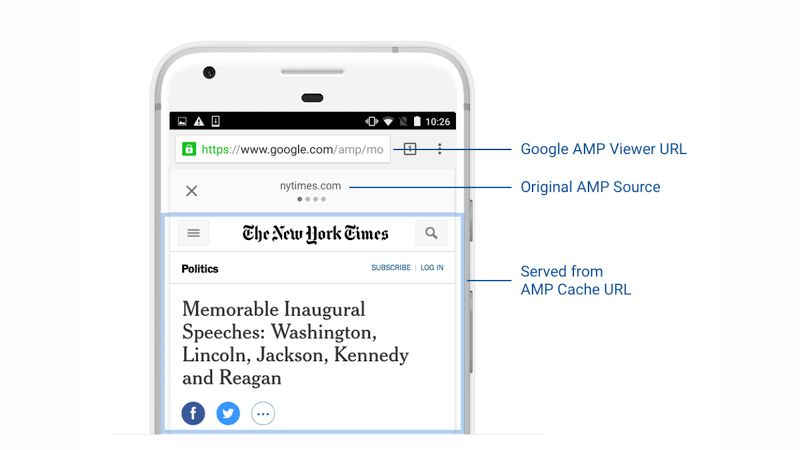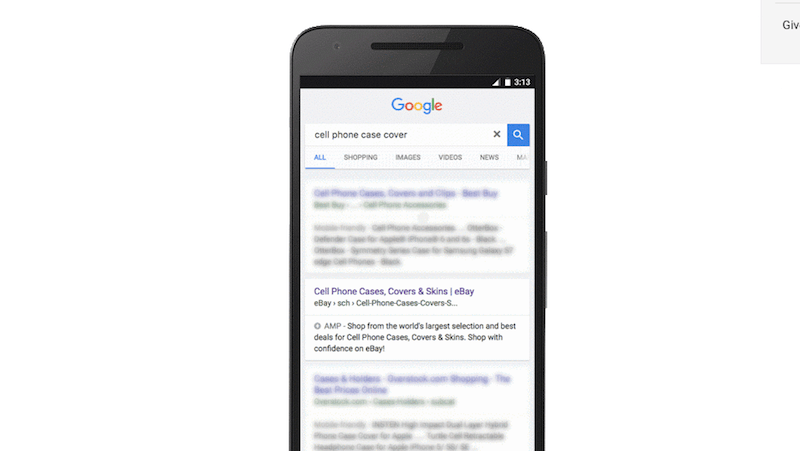
Google’s Accelerated Mobile Pages (AMP) project is now over a year old and has been taking on the likes of Facebook’s Instant Articles and the Apple News app. Google’s AMP is aimed at providing compatible content faster to users of its Search product on mobile. The company on Monday made few minor changes to its AMP results page that is focused on providing additional functionalities to users to view, copy, and share the original URL instead of Google’s own AMP URL while also providing true origin of the content appearing on the AMP results.
The new changes will start showing up on the Android Google app in the coming weeks. On Android, Google app will share the original URL of a document when users tap on the app’s share button. Notably, this functionality is already available on the iOS Google app.
The move to show publisher’s own link is said to be due to backlash from publishers that alleged Google stole mobile traffic, as pointed by TechCrunch. Google explains why AMP documents used to show three different kinds of URLs, which actually made it worse for publishers. The original URL was the publisher’s document written in the AMP format; AMP Cache URL was the document served through an AMP Cache though most users never saw this URL, and lastly, Google AMP viewer URL, which displayed in an AMP viewer or on the search result page. Google however defended its decision to stick with three URL formats. It said that the different URLs existed for caching and pre-rendering.
To provide appropriate attribution of content, Google will add a header bar that displays the “true” origin of a page. “On the web, a lot – URLs and origins represent, to some extent, trust and ownership of content. When you’re reading a New York Times article, a quick glimpse at the URL gives you a level of trust that what you’re reading represents the voice of the New York Times. Attribution, brand, and ownership are clear,” said Alex Fischer, Software Engineer, Google Search in a new blog post.
Google will be also adding support for access, copy, and share the canonical URL of a document which the company says was requested by publishers. The new feature will allow users to use their browser’s native share functionality by long-tapping on the link that is displayed. “Today [Monday], we’re adding a feature to the AMP integration in Google Search that allows users to access, copy, and share the canonical URL of an AMP document,” further said Fischer.
Google started India rollout of Accelerated Mobile Pages for mobile search results last year.
[Source:- gadgets.ndtv]





